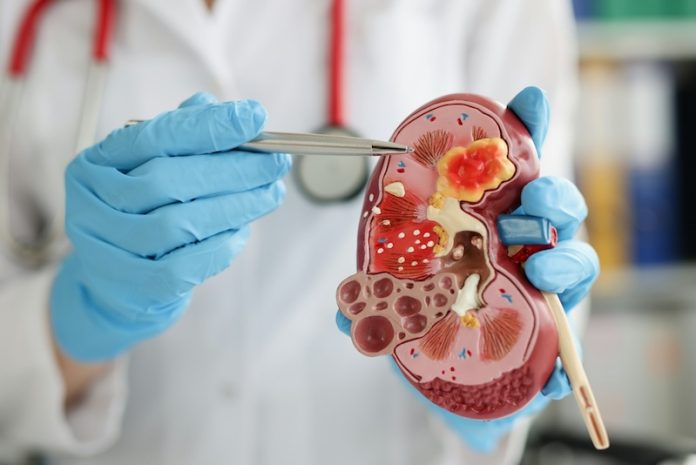
Chronic Kidney Disease (CKD) is a prevalent health issue that affects millions of people worldwide.
It is characterized by a gradual loss of kidney function over time.
Understanding the common causes of CKD is essential for prevention and early treatment, helping to manage the disease and improve outcomes for those affected.
This review explains these causes in straightforward terms, providing insights into how CKD develops and what can be done to prevent it.
What is Chronic Kidney Disease? CKD occurs when the kidneys, which are vital for filtering waste and excess fluids from the blood, become damaged and cannot perform this function effectively.
This can lead to a buildup of waste products in the body, which can cause various health problems. Symptoms often do not appear until the disease is quite advanced, making early detection and management crucial.
High Blood Pressure and Diabetes: The Leading Causes The two most common causes of CKD are high blood pressure (hypertension) and diabetes. Both conditions can damage the kidneys over time, particularly if they are not well-managed.
- Diabetes: Diabetes leads to excess sugar in the blood, which can cause damage to many parts of the body, including the kidneys. Over time, the high blood glucose levels in diabetes can damage the tiny filtering units in the kidneys, leading to CKD. Managing blood sugar levels through diet, exercise, and medication is critical to preventing this damage.
- High Blood Pressure: High blood pressure can also harm the kidneys. The increased pressure in the blood vessels can eventually weaken and narrow them throughout the body, including those in the kidneys. This can reduce the blood supply to the kidneys, impairing their ability to function properly. Controlling blood pressure through lifestyle changes and medication can significantly reduce the risk of developing CKD.
Other Significant Causes While diabetes and high blood pressure are the primary causes, several other conditions can lead to CKD:
- Glomerulonephritis: This group of diseases involves inflammation of the tiny filters in the kidneys (glomeruli). It is one of the most common types of kidney disease after diabetes and hypertension and can lead to significant kidney damage.
- Polycystic Kidney Disease: This genetic disorder causes numerous cysts to grow in the kidneys. These cysts can interfere with kidney function and lead to CKD.
- Prolonged Obstruction of the Urinary Tract: Conditions such as enlarged prostate, kidney stones, and some cancers can block the urinary tract and prevent urine from leaving the body. Over time, this can lead to kidney damage.
- Repeated Kidney Infections: Repeated or severe kidney infections (pyelonephritis) can cause permanent damage to the kidneys.
Prevention and Management Preventing CKD largely involves managing its risk factors:
- Regular Screening: Regular check-ups and screening for diabetes and high blood pressure are essential, especially if you have a family history of kidney disease or other risk factors.
- Healthy Lifestyle: Maintaining a healthy weight, eating a balanced diet low in salt and processed foods, and regular physical activity can help manage both diabetes and high blood pressure, reducing the risk of CKD.
- Avoiding Nephrotoxic Substances: Certain medications and toxins can damage the kidneys. Limiting exposure to these and using medications responsibly under medical guidance can help preserve kidney function.
- Hydration: Staying well-hydrated helps the kidneys clear sodium, urea, and toxins from the body, reducing the risk of kidney damage.
In conclusion, while CKD can be a serious health challenge, understanding and managing the underlying causes can significantly reduce its impact.
Through lifestyle changes, regular medical check-ups, and careful management of health conditions like diabetes and hypertension, many of the risks associated with CKD can be minimized, leading to better overall kidney health and a reduced burden of this disease.
If you care about kidney health, please read studies about how to protect your kidneys from diabetes, and drinking coffee could help reduce risk of kidney injury.
For more information about kidney health, please see recent studies about foods that may prevent recurrence of kidney stones, and eating nuts linked to lower risk of chronic kidney disease and death.
Copyright © 2024 Knowridge Science Report. All rights reserved.



